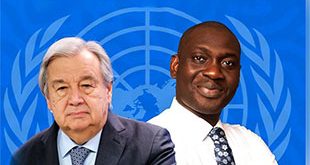
Secret dirty deals could end as govt signs transparency initiative
Kampala, Uganda | RONALD MUSOKE | Uganda’s recent admission into the Extractive Industries Transparency Initiative (EITI) is a “step in the right direction,” according to local civil society. But many also remain cautious.
Gerald Byarugaba, the extractive industries coordinator at Oxfam-Uganda told The Independent that it is a very positive development that Uganda finally accepted to join the global coalition that works to support transparency and accountability in the oil, gas and mining sectors in resource-rich countries.
“But, like they say, the devil is always in the detail. We wait to see whether the government will do what it has said it is going to do,” he said.
Don Bwesigye Binyina, the executive director of the African Centre for Energy and Mineral Policy (ACEMP) also told The Independent that “it has been a long journey for Uganda’s walk towards accountability and transparency.”
“We are excited but we are aware of the challenges that lie ahead; we expect to see more accountability, transparency and rule of law in the sector,” Binyina told The Independent, “This couldn’t have come at the right time because the mining sector is under capture by the “mafia.”
James Muhindo, the national coordinator of the Civil Society Coalition on Oil and Gas (CSCO), a consortium of local and international NGOs that advocate for transparency and accountability in Uganda’s extractives sector told The Independent on Aug.20 that EITI will fix several issues in the mining sector but “it will not be a magical wand that will change everything overnight.”
Cissy Kagaba, the executive director of the Anti-Corruption Coalition-Uganda (ACCU) said she hopes “the government will walk the talk” on EITI.
“We know that many African countries have joined ‘just for show’ while others have been pushed to do so by the donors,” she told The Independent.
“There is a possibility that this is a condition that some big donor has given the government. If this is the case, then it is going to be a hustle to implement the EITI,” Kagaba told The Independent, “It is different when someone forces you to do something as opposed to when you do it willingly.”
The EITI standard encourages governments to publish contracts and production figures in the oil, gas and mining sectors. State-owned companies and regional transfers are also covered by the disclosure requirements.
In fact, ‘transparency’ was the key word as Helen Clark, the chairperson of the EITI board welcomed Uganda to the “EITI community” on Aug.12.
Sending her congratulatory message, Clark emphasized the importance of transparency in ensuring that money from Uganda’s oil and gas production is not mismanaged, stolen, or lost to corruption.
“We welcome Uganda as an implementing country and look forward to the EITI promoting inclusive public debate,” she said.
Matia Kasaija, the finance minister told the EITI secretariat that Uganda decided to join the initiative because the country values transparency as it moves nearer to getting money from its minerals and oil.
“We believe that this initiative has the potential to strengthen tax collection, improve the investment climate, build trust among sector stakeholders and help create lasting value from our mineral and petroleum resources,” he said.
Uganda’s oil industry is relatively young but its leading partner in the Lake Albert Development Project, the international oil company Total, is a founding member of the EITI.
Writing in support of the EITI implementation, Total E&P Uganda—an active participant in Uganda’s multi stakeholder group— said being open about contracts signed contributes to a transparent and accountable sector.
“We look forward to working with the government, industry and civil society partners to support EITI implementation through participation in Uganda’s multi-stakeholder group,” said Pierre Jessua, Total E&P Uganda’s general manager.
 The Independent Uganda: You get the Truth we Pay the Price
The Independent Uganda: You get the Truth we Pay the Price




